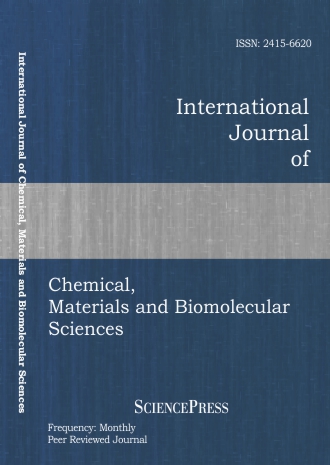
Scholarly
Volume:5, Issue: 6, 2011 Page No: 483 - 486
International Journal of Chemical, Materials and Biomolecular Sciences
ISSN: 2415-6620
1155 Downloads
Migration and Accumulation of Artificial Radionuclides in the System Water-Soil-Plants Depending on Polymers Applying
The possibility of radionuclides-related contamination of lands at agricultural holdings defines the necessity to apply special protective measures in plant growing. The aim of researches is to elucidate the influence of polymers applying on biological migration of man-made anthropogenic radionuclides 90Sr and 137Cs in the system water - soil – plant. The tests are being carried out under field conditions with and without application of polymers in root-inhabited media in more radioecological tension zone (with the radius of 7 km from the Armenian Nuclear Power Plant). The polymers on the base of K+, Caµ, KµCaµ ions were tested. Productivity of pepper depending on the presence and type of polymer material, content of artificial radionuclides in waters, soil and plant material has been determined. The character of different polymers influence on the artificial radionuclides migration and accumulation in the system water-soil-plant and accumulation in the plants has been cleared up.
References:
[1] V. L. Ananyan and E. K. Stepanyan, Influence of Armenian NPP on